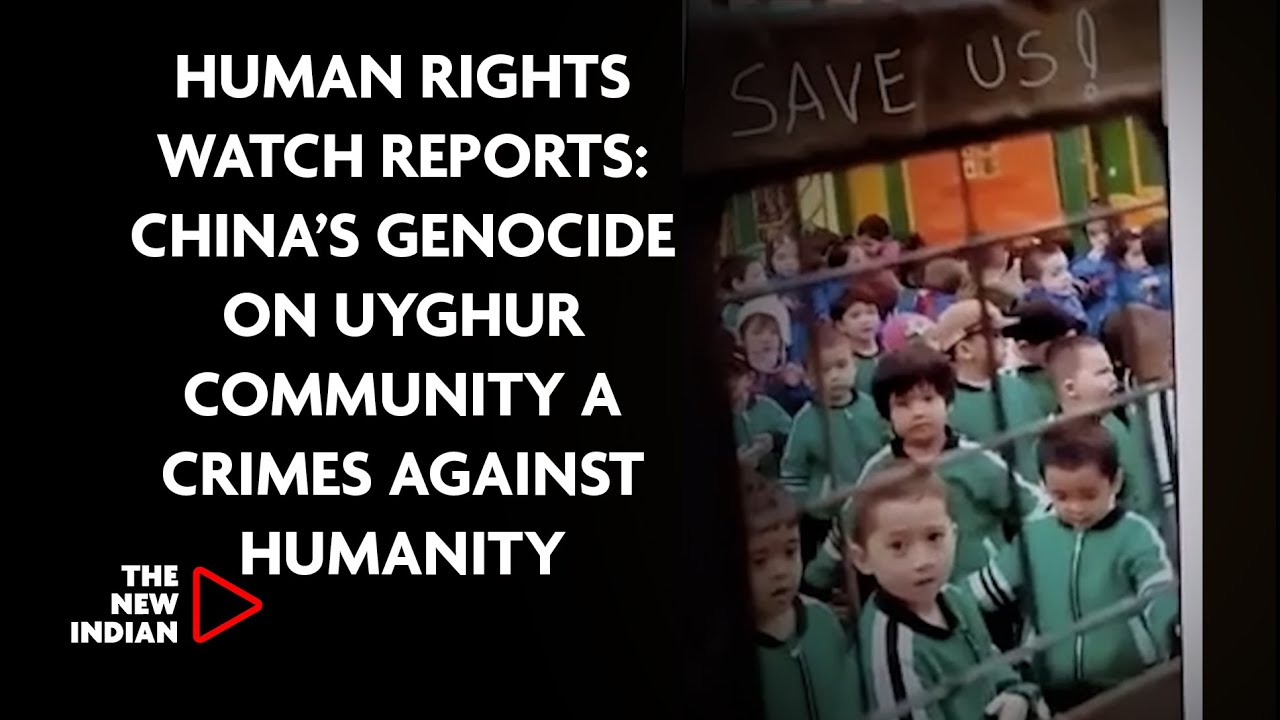


NEW DELHI: On December 23, 2021, United States President Joe Biden signed into law the Uyghur Forced Labor Prevention Act, a bipartisan bill to ensure that goods and materials manufactured with forced labor in the Xinjiang Region of the People’s Republic of China do not enter the United States market. While Biden signed the Uyghur bill in private, the White House arranged a public signing ceremony with guests participating remotely for the Accelerating Access to Critical Therapies for ALS Act.
Businesses will have to prove that forced labour, including by workers from the Xinjiang region, was not used in the manufacturing or packaging of the product before it will be allowed into the United States. The House and Senate each passed the legislature with the majority support from both the Democrats and Republicans.
The law comes as a call to action after the reports on Uyghurs and other Turkic minorities being subjected to forced labour and other atrocities and is to prevent U.S. businesses and consumers from becoming complicit in the atrocities. In the past year, the U.S. State Department recognized the atrocities against the Uyghurs as genocide and crimes against humanity according to a detailed report released by Human Rights Watch (HRW). The Act is a stepping stone to ensure that businesses and individuals are not complicit in the atrocities perpetrated against the Uyghurs in Xinjiang.
China has repeatedly denied that any forced labor has taken place in the Xinjiang region, although it claims “Vocational training programs” for residents whom officials considered susceptible to separatism or religious extremism and other forms of abuse. There were also calls for a boycott of the Beijing Winter Olympics.
In light of various allegations and accusations, China has replaced Chen Quanguo, who was the Communist Party chief in the Xinjiang region, and oversaw a security crackdown targeting ethnic Uyghurs and other minorities in the name of fighting religious extremism. Chen, in his post since 2016, will move to another role and Ma Xingrui, governor of the coastal economic powerhouse of Guangdong province since 2017, has replaced him, the official Xinhua News Agency said. United Nations researchers and human rights activists estimate more than one million Muslims have been detained in camps in western China’s Xinjiang region. According to some Chinese observers, Chen might be promoted further during the party congress. Others say his replacement, Ma, may focus more on the region’s economic development.
The US imports raw cotton, gloves, tomato products, silicon and viscose, fishing gear, and components in solar energy as among various goods alleged to have been produced using forced labor in Xinjiang, a resource and cheap labor rich mining territory that is important for production. Companies like Apple and Nike with their sweatshops in the region with production done in China, said it had found no trace of forced labor from Xinjiang in its manufacturing or supply chain. Under the 1930 Tariff Act, it is illegal to import into the United States any goods made in whole or in part by forced labor.
Commenting upon the passing of the bill, White House Speaker Nancy Pelosi said: “The ongoing genocide perpetrated by the Chinese government against the Uyghur people and other Muslim minorities is a challenge to the conscience of the entire world, which is why the House twice passed legislation to hold the Chinese Communist Party [CCP] run by Xi Jinping, accountable for its exploitation of forced labor and put an end to this horrific practice.”
She also added: “Congress, on a bipartisan and bicameral basis, will continue to condemn and confront the CCP’s human rights abuses in Xinjiang and many other waves of abuse in the region, from Hong Kong to Tibet to the mainland. If America does not speak out for human rights in China because of commercial interests, we lose all moral authority to speak out for human rights any place in the world.”
White House press secretary Jen Psaki called upon all industries to: “Ensure that they are not sourcing products that involve forced labor, including forced labor from Xinjiang region. The harsh reality is that companies that fail to address forced labor and other human rights issues in their supply chains will face serious legal risk and reputational and customer risks, not just in the United States but in other parts of the world.” This corporate responsibility must exist even if the state does not fulfill its duty to adhere to human rights obligations.